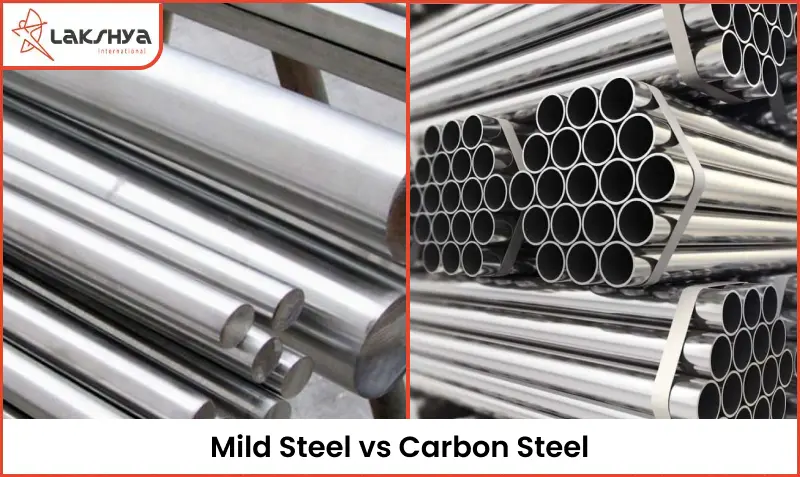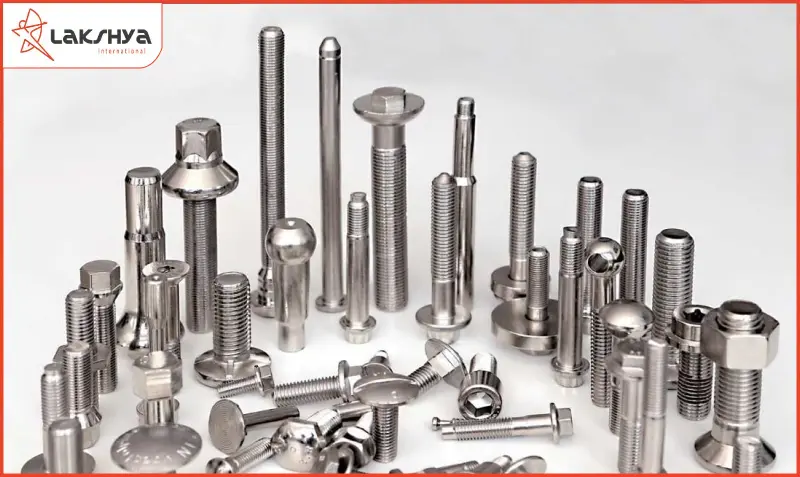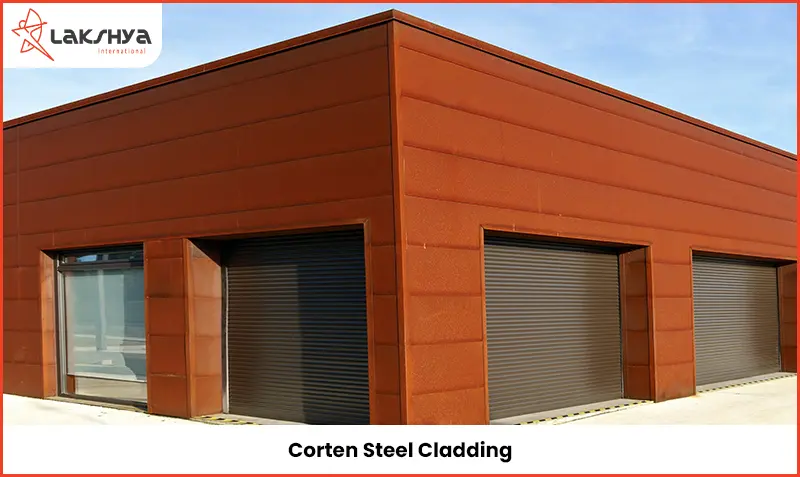Introduction
In the world of engineering and manufacturing, the choice of materials plays a crucial role in determining the strength, durability, and cost-effectiveness of a wide range of applications. Two popular materials that often come into consideration are stainless steel and titanium. In this blog post, we will delve into the characteristics, strengths, and differences between titanium vs stainless steel, exploring their applications, properties, and relative cost.
What is stainless steel?
Stainless Steel is a unique alloy composed of iron and a minimum of 10.5% chromium. When exposed to the atmosphere, chromium forms a thin layer of oxide on the steel’s surface, commonly referred to as the “passive layer.” This oxide layer acts as a protective barrier, effectively preventing further corrosion of the steel. The higher the chromium content, the greater the corrosion resistance of the Stainless Steel. In addition to chromium, Stainless Steel may also contain varying amounts of Carbon, Silicon, and Manganese. These elements contribute to the overall composition and properties of the alloy. Furthermore, elements like Nickel and Molybdenum can be added to Stainless Steel to provide additional advantageous characteristics, such as improved formability and enhanced corrosion resistance. By incorporating different elements, Stainless Steel can undergo modifications to suit specific requirements and exhibit desired traits.
What is Titanium?
Titanium is a metallic element that exhibits a silver to grey color. It is identified by its atomic number 22 and chemical symbol Ti. Is titanium stronger than steel? Titanium alloys possess exceptional qualities, including high heat transfer efficiency and remarkable corrosion resistance. These alloys are renowned for their impressive strength-to-weight ratio, resulting in the creation of extraordinarily sturdy materials. Consequently, they are highly sought after in industries where fluctuations in temperature and exposure to weather elements can have detrimental effects on structural components, such as in the construction sector. Titanium alloys offer superior mechanical resistance, ensuring remarkable durability. Additionally, their lightweight nature, attributable to low density, makes them highly desirable for specific industries. Their extensive corrosion resistance covers a broad range, rendering them highly resilient against corrosion caused by various acids, alkalis, natural waters, and industrial chemicals.
-
Stainless Steel vs. Titanium: An Overview
Stainless steel is a versatile alloy made primarily of iron, chromium, and small amounts of other elements such as carbon, nickel, and molybdenum. It is renowned for its excellent corrosion resistance, high strength, and low maintenance requirements. Stainless steel is commonly used in industries such as construction, automotive, aerospace, and kitchenware.
The primary distinction between titanium and stainless steel lies in their composition. Titanium steel is a standalone metal, whereas stainless steel is an alloy metal formed by incorporating other metals into it. Depending on the specific project or application, one material may be better suited than the other.
Industries that prioritize weight over strength often favor stainless steel. It is particularly suitable for sectors like aerospace, where low density along with strength is crucial. On the other hand, titanium’s unique qualities, including strength, durability, and low density, make it a preferred choice for certain manufacturers when weight is a more significant consideration than strength.
How strong is Titanium? Titanium is a lightweight metal known for its exceptional strength-to-weight ratio, excellent corrosion resistance, and biocompatibility. It is extracted from mineral deposits and refined through various processes. Titanium finds application in aerospace, medical implants, sports equipment, and chemical processing industries.
Titanium is more expensive than stainless steel, which can make it prohibitively expensive in sectors that require large amounts, such as construction. Consequently, when the cost is a significant factor, stainless steel is preferred over titanium, provided both materials are deemed suitable for the application.
One of titanium’s notable advantages is its exceptional biocompatibility, making it non-toxic to the human body. This quality makes it highly valuable in the medical industry for applications like knee replacements, hip implants, pacemaker cases, and craniofacial plates. It is also widely utilized in the dental industry for dental implants, an area experiencing growth. Additionally, the biocompatibility and lightweight nature of titanium alloy make it a popular choice for crafting jewelry.
Stainless steel 202 offers both formability and weldability, allowing for easy shaping. Its shiny appearance makes it a popular material in various industries. It is used to manufacture household items like kitchen pans and pots, as well as healthcare products such as portable carts, sinks, shelving, tables, and countertops.
Titanium components exhibit high resistance to fatigue caused by temperature fluctuations, whereas stainless steel is prone to shattering and fatigue. Therefore, titanium is a superior option when extreme temperature variations are expected.
Both titanium vs steel finds extensive usage across industries worldwide. Both materials are highly robust, durable, and corrosion-resistant. Ultimately, the choice between the two is typically determined by the specific requirements of the intended application.
Titanium and Stainless Steel Price:
| Titanium | $35.00-$50.00/ Kilogram |
| Stainless Steel | $1.00-$1.50/ Kilogram |
-
Strength and Durability
When comparing the strength of titanium and stainless steel, it’s important to consider specific alloys and grades within each material. Generally speaking, titanium possesses a higher strength-to-weight ratio than stainless steel, meaning it can withstand greater stress and pressure for a given weight. This property makes titanium highly desirable for applications where weight reduction is critical, such as aircraft components.
Stainless steel, however, exhibits superior hardness and durability compared to titanium. It is less susceptible to scratching, bending, or deformation under heavy loads. Stainless steel’s strength and toughness make it suitable for applications that require resistance to wear, impact, and extreme temperatures.
-
Corrosion Resistance
One of the primary reasons stainless steel is widely used is its exceptional corrosion resistance. The chromium content in stainless steel forms a protective oxide layer on the surface, preventing rust and corrosion even in harsh environments. This makes stainless steel an excellent choice for applications exposed to moisture, chemicals, and saltwater, such as marine equipment and kitchen appliances.
While stainless steel offers excellent corrosion resistance, titanium takes it a step further. Titanium exhibits unparalleled resistance to corrosion, particularly in aggressive environments such as acidic or alkaline solutions, chlorides, and saltwater. Its resistance to localized corrosion, such as pitting and crevice corrosion, makes it highly suitable for critical applications like offshore oil rigs and medical implants.
-
Weight and Density
Titanium is renowned for its low density, approximately 50% that of steel. This property allows engineers to design lighter structures without compromising strength and durability. For applications that require weight reduction, such as aerospace components, titanium offers a significant advantage over stainless steel.
Stainless steel, while denser than titanium, provides advantages in applications where weight is less critical. Its density contributes to its superior strength and robustness, making it suitable for heavy-duty applications such as construction equipment and industrial machinery.
-
Cost Considerations
Cost is a significant factor when selecting materials for a given application. Stainless steel is generally more affordable than titanium. The price of stainless steel varies depending on factors such as alloy composition, grade, and market fluctuations. It is widely available and offers a cost-effective solution for many applications.
Titanium, on the other hand, is considered a high-value material due to its scarcity and complex extraction process. Its higher cost is attributed to factors such as energy-intensive production methods and the limited availability of titanium resources. Consequently, titanium is primarily used in applications where its unique properties are essential, rather than for cost-sensitive applications.
Conclusion
In the comparison between stainless steel and titanium, both materials have their unique strengths and properties. Stainless steel boasts excellent corrosion resistance, strength, and affordability, making it a reliable choice for various applications. On the other hand, titanium offers an exceptional strength-to-weight ratio, and superior corrosion resistance, and is highly valued in industries where lightweight and high-performance materials are crucial.
Lakshya International is a leading supplier and manufacturer based in India that specializes in providing Stainless Steel Products like SS 202, SS 301, SS 303, SS 304, SS 309, SS 310, SS 316, SS 317L, SS 321/347, SS 409/410/430/431/439/411, SS 416/440C/446, SS 904L, SS 201/J1/J2/J3/J4 and Titanium Products like Titanium Grade 2 / 5 / 3 / 7, Titanium Grade 2, Titanium Grade 5, Titanium Components, these products are manufactured to meet high-quality standards and are widely recognized in the industry. The company has a team of experienced professionals who ensure timely delivery and excellent customer service. Lakshya International offers competitive Steel and Titanium prices and customizable solutions to meet the specific needs of its clients.




